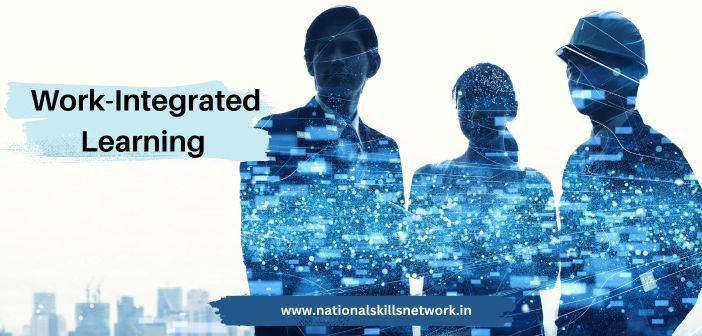In today’s rapidly evolving job market, traditional classroom education alone may not suffice to prepare students for the challenges they will face in the future. This is where work-integrated learning steps in as a dynamic and effective approach to education. Work-integrated learning seamlessly integrates classroom theory with real world industry experience, offering numerous benefits to both learners and industries.
In this article, we will delve into the five key advantages of work-integrated learning and how it contributes to the growth and development of both individuals and the business world.
Register for the 14th FICCI Global Skills Summit 2023: Building Skills. Empowering Youth. Creating Future- https://registrations.ficci.com/gssfic/online-registration.asp
What is work-integrated learning?
Work-integrated learning, also known as experiential learning, is an educational approach that combines academic learning with practical, on-the-job training. It is designed to give students the opportunity to apply what they have learned in a real-world work setting, thereby enhancing their skills, knowledge, and employability.
5 Key benefits of work-integrated learning for learners
Practical skill development
Work-integrated learning offers learners the chance to develop practical skills that cannot be gained solely through traditional classroom education. It allows them to put theory into practice, which not only reinforces their understanding but also hones their problem-solving abilities, critical thinking, and adaptability.
Industry relevance
It ensures that learners are up-to-date with industry trends and practices. This firsthand exposure helps them align their education with the demands of the job market, making them more attractive candidates to prospective employers.
Networking opportunities
It provides learners with valuable networking opportunities. They interact with industry professionals, build relationships, and establish contacts that can help kickstart their careers. Networking also fosters mentorship, giving students guidance and advice from experienced individuals in their chosen field.
Enhanced employability
Having practical experience helps enhance a learner’s employability. Graduates with work-integrated learning experience are often seen as more job-ready than those without, making them more likely to secure employment shortly after completing their education.
Confidence boost
By tackling real-world challenges during their work-integrated learning experiences, learners gain confidence in their abilities. They become more self-assured and better equipped to handle the complexities of their chosen profession.

Here are the 5 crucial benefits for industries
Access to fresh talent
Industries benefit from work-integrated learning programs by gaining access to a pool of fresh, skilled talent. They can identify and recruit potential future employees, reducing the time and resources spent on traditional recruitment processes.
Enhanced productivity
Students often contribute to industry projects during their placements. Their contributions can lead to increased productivity and innovative solutions, as they bring new perspectives and ideas to the workplace.
Reduced training costs
When new employees have completed the programs, they typically require less training. They are already familiar with the company’s operations and culture, reducing the time and resources needed for onboarding.
Collaboration opportunities
Work-integrated learning partnerships promote collaboration between educational institutions and industries. This collaboration can lead to joint research initiatives, knowledge sharing, and the development of mutually beneficial programs.
Innovation and diversity
Learners in experiential learning programs often bring fresh ideas and diverse perspectives to the workplace. This diversity can stimulate innovation and creativity within the industry, helping it adapt to changing market conditions.
Also read: 5 Ways NEP 2020 is Shaping the Future of Indian Education
Work-integrated learning is a win-win scenario for both learners and industries. It equips learners with practical skills, industry relevance, and valuable networking opportunities, making them highly employable. Simultaneously, industries benefit from access to skilled talent, enhanced productivity, and reduced training costs. The symbiotic relationship between learners and industries through experiential learning programs is transforming education and contributing to the growth and competitiveness of various sectors. As work-integrated learning continues to gain prominence, it is essential for educational institutions and industries to foster strong partnerships that promote experiential learning and mutual success.












